ISBER Best Practices Fourth Edition Launch
The International Society for Biological and Environmental Repositories (ISBER) is pleased to announce the release of the ISBER Best Practices, Fourth Edition.
The International Society for Biological and Environmental Repositories (ISBER) is pleased to announce the release of the ISBER Best Practices, Fourth Edition.
The Royan Institute is a non-profit research institute for reproductive biomedicine and infertility treatments in Tehran, Iran. On February 14, 2018 they are holding their second Cryobiology and Biobanking Symposium.
Dr. Jason Acker, immediate Past President of the Society for Cryobiology will be speaking, along with a number of local cryobiology and biobanking experts.
For more information please contact:
Vahid Asgari, PhD
Intl' Business Affairs
Consultant and Instructor
[email protected]
+98-9123007955
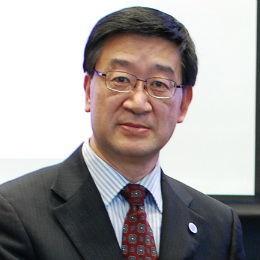 As cryobiologists, we are entering a new era when cryobiology has a unique and significant contribution and impact on almost every major biomedical research and application area. A once opaque science shrouded in mystery (and liquid nitrogen vapors!) has captured the attention of the public through mainstream news articles on tissue engineering, regenerative medicine, artificial organs, and tissue-organ transplantation. With this diverse range of applications and growing public acknowledgement, this is an exciting time for the field, its scientists and end users, and the Society for Cryobiology.
As cryobiologists, we are entering a new era when cryobiology has a unique and significant contribution and impact on almost every major biomedical research and application area. A once opaque science shrouded in mystery (and liquid nitrogen vapors!) has captured the attention of the public through mainstream news articles on tissue engineering, regenerative medicine, artificial organs, and tissue-organ transplantation. With this diverse range of applications and growing public acknowledgement, this is an exciting time for the field, its scientists and end users, and the Society for Cryobiology.
I inherit a Society whose productivity has flourished during the previous two years under the guidance of my predecessor, Dr. Jason Acker. I could not ask for a better springboard from which to begin my term as President.
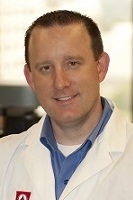 I would like to thank all of you for taking time to participate in the discussions and for voting on the proposed revisions to our Society’s bylaws. As one of the important documents which guides who we are as a Society and how we choose to operate as an organization, our bylaws need to be up to date and reflect current best practices and laws governing not for profit corporations. The proposed changes were the culmination of more than a decade of discussion, debate and consultation with subject matter experts.
I would like to thank all of you for taking time to participate in the discussions and for voting on the proposed revisions to our Society’s bylaws. As one of the important documents which guides who we are as a Society and how we choose to operate as an organization, our bylaws need to be up to date and reflect current best practices and laws governing not for profit corporations. The proposed changes were the culmination of more than a decade of discussion, debate and consultation with subject matter experts.
Entomologist, Biologist or Cryobiologist, Post Doc
Location: Red River Valley Agricultural Research Center
USDA-ARS, Fargo, ND, USA
Closing Date: February 2, 2018
Link: https://www.cdcfoundation.org/jobs/entomologist-biologist-or-cryobiologist-post-doc-941
Company: Kite
Location: Santa Monica, CA, USA
Closing Date: Open until filled
Incoming 2018 Board Members
Entry for the CRYO2018 Student Awards and Travel Grants is now open.
Download application form.
Time is running out to vote in the motion put to all members to revise the Society's bylaws. Voting closes December 31, 2017 at 23:59 ET.
Read the revised bylaws and the summary of changes.
All members in good standing should have received by now several emails with instructions for online voting. If you have not received these emails please check your spam/junk folder and then contact us.
The revised bylaws currently before the members are the culmination of approximately three years work, and at least 10 years of discussion by the Board of Governors. The past year in particular has seen outstanding progress by a special bylaws working group chaired by current President, Jason Acker. This group has worked tirelessly alongside Maryland Nonprofits, an association for Maryland nonprofit associations, to update our ageing bylaws, which currently date from 1995.
The members of the bylaws working group in full are: Jason Acker (chair), Ed Kordoski (Executive Director), Greg Fahy (governor), and Society members Elena Salvaterra, Andy Picken, and Steve Mullen.
BYLAWS FAQ
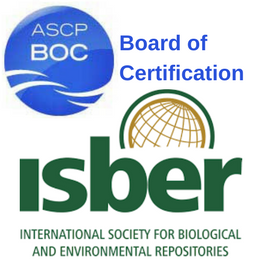 The International Society for Biological and Environmental Repositories (ISBER) and the American Society for Clinical Pathology Board of Certification (ASCP BOC) announced on December 11, 2017, that they have reached an agreement to develop a new Biobanking Practitioner Qualification.
The International Society for Biological and Environmental Repositories (ISBER) and the American Society for Clinical Pathology Board of Certification (ASCP BOC) announced on December 11, 2017, that they have reached an agreement to develop a new Biobanking Practitioner Qualification.
ASCP BOC offers qualifications for medical laboratory professionals and has certified more than half a million people since its inception in 1928.
ISBER, established more recently in 1999, represents professionals in biological and environmental biorepositories.
From early 2019 ISBER members who fulfil certain educational and experience requirements will be able to sit an online examination to recognize their biobanking skills.
ISBER President, Zisis Kozlakidis, said, "Improving the quality of biobanking practices is essential to improving research outcomes, especially in the fields of translational and precision medicine. With this new qualification we will be able to advance the science of biobanking to the level required to support future healthcare breakthroughs."
The Cryogenic Society of America is offering a series of free cryogenic safety webinars during January and February 2018.
The topics are:
President-Elect and chair of the nominating committee, Dayong Gao, offers his congratulations to the winning candidates of the Society for Cryobiology election.
After you've read all about the winners, please take a moment to renew your membership for 2018, if you have not already done so.
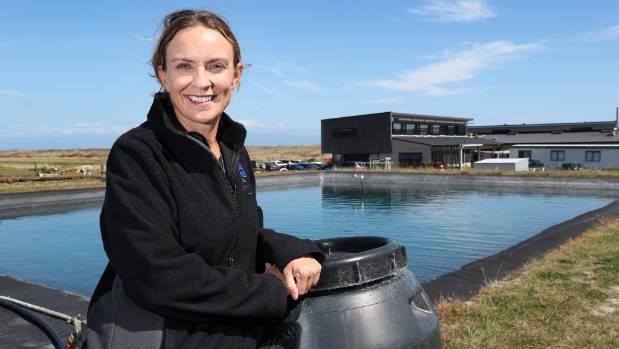
Serean Adams, pictured at Cawthron Aquaculture Park in Nelson, New Zealand.
Society Governor, Dr. Serean Adams, was in the news after speaking about the future and challenges facing aquaculture at New Zealand's recent industry conference held in Nelson, New Zealand.
Dr. Adams, who completed her PhD under Cryobiology Editor-in-Chief, Prof. David Rawson, is now Aquaculture Group Manager at Cawthron Institute, New Zealand's largest independent science organisation, specialising in science that supports the environment and development within primary industries.
Read the full article to see what Serean has to say about the future of marine cryobiology.
Guest Post and Photos by Estefania Paredes | Photo Gallery courtesy of Alasdair Kay
Student Positions in reproductive biology, biophysics, and mathematical biology.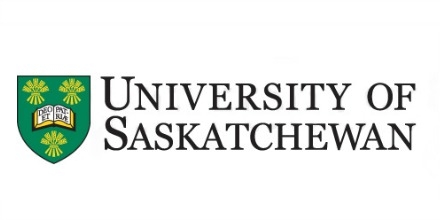

First Row: Adam Higgins, Tiantian Zhang, Zhiquan (Andy) Shu, Yuansheng (Tony) Tan
Second Row: Yuksel Agca, Ido Braslavsky, Ram Devireddy, Igor Katkov
Third Row: Peter Kilbride, Krishnaa Mahbubani, Estefania Paredes, Barbara Reed
Fourth Row: Peter Wilson, Erik Woods, Gang Zhao
This year's Society for Cryobiology election is for the elected executive officer positions of President-Elect, Secretary, and Treasurer for a two year term (2018-2019) and three Governor-at-Large positions for a three year term (2018-2020).
Download candidate biographies and vision statements
The election will open for voting on Monday October 23, 2017 for a two week period. Voting will be online. All current members of the Society will receive an email containing their personalized voting link before the election opens. No log in is necessary as each personalized link provides you with a one time use election ballot. Please check your ballot carefully before you submit as you are not able to edit your vote once it has been submitted. If you have not received your voting link by the time the election has opened please check your spam/junk email folder and then contact Nicole Evans.
Voting will close 23:59 US/Eastern Monday November 6, 2017.
The candidates in full are:
President-Elect
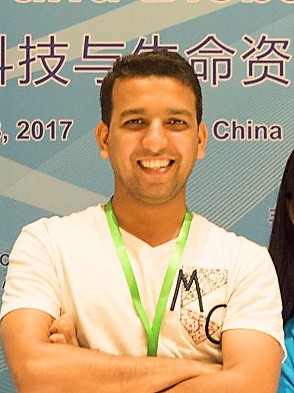 A guest post by Fazil Panhwar, student member of the Society for Cryobiology and member of the local organizing committee of CRYO2017.
A guest post by Fazil Panhwar, student member of the Society for Cryobiology and member of the local organizing committee of CRYO2017.
Fazil is a Masters student, studying with Society for Cryobiology Governor Professor Gang Zhao, at the University of Science and Technology of China (USTC) in Hefei. In addition to his studies, Fazil has been an integral member of the local organizing committee and also led the organization of the ICYR activities. He shares his unique perspective and insights into CRYO2017 in this special report.
After the science wrapped up at CRYO2017, the local organizers arranged a banquet of traditional Chinese fare, including potent local spirit Baijiu. After dinner the student award winners were announced and our outgoing board members recognized for their service to the Society.
Over the following few days a variety of tours were offered by the local organizing committee, including tours to Lake Chaohu, Sanhe Village, an ancient water village, and Mount Huangshan and Hongcun Village, a UNESCO world heritage site.
Click the thumbnails below to view the high res image.
The International Cryobiology Youth Researchers (ICYR) had a busy week at CRYO2017 with two social events and the opportunity to actively participate in learning how to chair a session during a symposium.
On Saturday July 22 the ICYR held a dinner at the Fengda Hotel, which featured a range of Anhui province and other Chinese specialities. The food was an almost endless array of meat and fish and a number of us tasted chicken feet for the first time. Verdict: Spicy and less weird than expected!